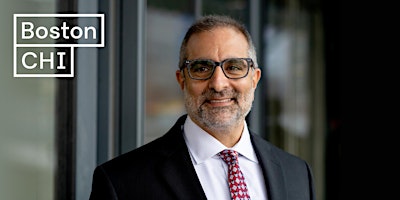The next BostonCHI meeting is Gregory Abowd – Ignorance is Bliss: A career retrospective (hybrid event) on Tue, Jun 13 at 5:30 PM.
Abstract
In 1988, as a graduate student grappling to find a research identity, I accidentally discovered the field of HCI. Over the past 35 years, a passion for applying the tools and techniques of computing to uncover how the human experience with technology can be understood and transformed. That leap into HCI was just the first of a number of leaps of faith. My career has been a series of shifting research agendas, each one inspired by some life events. In all cases, I was buoyed by a bevy of talented and supportive colleagues, advisors and advisees alike, who gave me the courage to jump into a research topic that I didn’t know much about. That “ignorance” has allowed me to be more fearless than I had the right to be. In this talk, I will reflect on my professional journey, hoping to inspire others to dispel fear of the unknown and unlock their potential. Life, like research, is best when shared with others whom you can respect and befriend.
About Gregory Abowd
Gregory Abowd is a world leader in the invention and application of ubiquitous computing technologies. His work has defined the field over the past three decades, and his intellectual contributions have shaped two major themes in ubiquitous computing: context-aware computing and automated capture and access of live experiences. He has shown how a variety of application areas—the classroom, the home, autism, and health care—benefit from innovations in mobile and ubiquitous technologies. Two particularly trailblazing projects, Classroom 2000 and the Aware Home, demonstrated “living laboratories” to advance technological advancements as well as understanding the impact when those technologies are woven into everyday life. He is the most highly cited researcher in ubiquitous computing in the world, with over 60,000 citations. Nine papers alone have each been cited over 1000 times; four papers have won either 10- or 20-year impact awards. After 26.5 years serving on the faculty at Georgia Tech, Gregory moved to become Dean of Engineering at Northeastern University in March 2021. He still maintains an active research career, with his most recent efforts on computational sustainability and the Internet of Materials influencing a new generation of students and researchers.
Gregory’s leadership to the research community cemented ubiquitous computing as a core topic in HCI research. He hosted UbiComp 2001 in Atlanta, rebranding and establishing it as the premier forum in the area. He served on the founding editorial board for IEEE Pervasive Computing Magazine and was the co-founding Editor-in-Chief of Foundations and Trends in HCI. In the mid 2010’s created the Proceedings of the ACM in Interaction, Mobile, Wearable, and Ubiquitous Technologies (IMWUT), serving as the Founding Editor-in-Chief. This journal was a bold, and ultimately successful experiment to merge the best practices of conference and journal reviewing.Its success has served as a model for other HCI and CS communities.
Beyond the impact of his publications, his research has resulted in public-domain software toolkits and commercial solutions in the home and health sectors. As the parent of two sons on the autism spectrum, Gregory initiated a research program in technologies to support this neurodiverse population, resulting in several commercial products. In the process, he started a non-profit, the Atlanta Autism Consortium, that connects stakeholder communities across research, clinical practice, education, and families, and he was recognized by the State of Georgia for his efforts in establishing that organization.
Gregory is arguably one of the most influential HCI educators in the world. He is co-author of the first proper textbook on Human-Computer Interaction, first published in 1994. He earned several awards for teaching effectiveness and the innovative use of technology in the classroom, but it is his unrivaled success as a research mentor that separates him. He has graduated 35 PhD students and advised countless masters and undergraduate students who have gone on to stellar research careers. More than two-thirds of his PhD students have gone onto academic careers, and his academic family numbers over 250. Many of those former students are themselves well known in the field and have assumed roles of research and administrative leadership, without a doubt his greatest impact as an educator and researcher.
Gregory has been recognized by ACM as a Fellow, a member of the SIGCHI Academy, recipient of the SIGCHI Social Impact Award, and the ACM Eugene Lawler Humanitarian Award.
